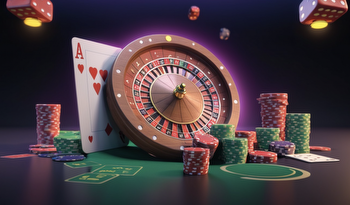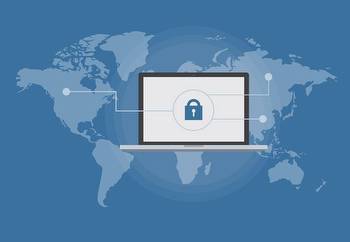The Most Important Legal Aspects You Need To Know Before Playing Online Casino Games

Playing online casino games can be a fun and enjoyable recreational activity. However, before immersing yourself in the world of online gaming, there are some important legal aspects you need to know. Knowing these legal aspects can ensure your online gaming experience is responsible, safe and won’t result in complications for you down the line. So, if you play or have considered playing online casino games, read on to learn about the basic laws and practices you need to know and how to protect your personal data.
Legal online gambling age
The legal online gambling age varies depending on the jurisdiction. In many states and foreign countries, the legal gambling age is typically 18 or 21 years old however it is best to source your info on legal gambling age from an official state or national government website. Checking the laws and regulations of your specific jurisdiction is a bulletproof way to ensure that you are of legal age to participate in online gambling activities. Remember, not respecting these rules can result in fines or even jail time, both of which are worth avoiding at all costs,
The laws casino sites need to obey
Online casinos need to adhere to several important laws and regulations to ensure a safe and fair gambling environment for their players. Here are some of the most important laws that online casinos need to obey:
- Licensing and regulation: Online casinos must obtain a valid gambling license from a reputable jurisdiction. This license ensures that the casino operates legally and meets certain standards of fairness and security.
- Player protection: Online casinos must have measures in place to protect players, such as age verification to prevent underage gambling, responsible gambling tools to promote healthy gambling habits, and secure systems to protect players’ personal and financial information.
- Fairness and randomness: Online casinos must use certified random number generators (RNGs) to ensure that the outcome of games is fair and unbiased. Regular audits and testing by independent third-party organizations are necessary to verify the integrity of the games.
- Anti-money laundering (AML): Online casinos need to implement robust AML measures to prevent their platforms from being used for money laundering or other illegal activities. This includes thorough customer due diligence, monitoring of transactions, and reporting suspicious activities.
- Privacy and data protection: Online casinos must comply with data protection laws and ensure that players’ personal information is securely stored and used only for legitimate purposes. They should have clear privacy policies in place and obtain consent from players before collecting any personal data.
- Advertising and marketing: Online casinos need to follow strict guidelines when it comes to advertising and marketing their services. They should not target vulnerable individuals, make false claims, or engage in any deceptive practices.
- Payment processing: Online casinos must comply with relevant laws and regulations regarding payment processing, including ensuring secure transactions, protecting players’ financial information and preventing fraud.
By adhering to these laws and regulations, online casinos can provide a safe and trustworthy gambling experience for their players while also maintaining the integrity of the industry.
Protect your personal data
It is not important if you are streaming sports games or playing online casino games, protecting your personal data when browsing new sites is a crucial step in ensuring your privacy and security. Even if the casino platform itself is legal, the danger of hackers who can steal your data can still be lurking. Here are some tips to help you safeguard your information:
- Before playing, research and select a trusted online casino with a good reputation for data security. One way to do so is to look for casinos that are licensed and regulated by reputable authorities.
- Create strong passwords for your casino accounts, using a combination of letters, numbers and symbols. Avoid using the same password for multiple accounts and change your passwords regularly. You can also enable additional security features such as 2FA, which act as an extra step of verification when logging into your account.
- Be cautious with your personal information. Always refrain from sharing unnecessary personal information when signing up for an online casino account. Only provide the required details and be wary of any requests for sensitive information that don’t seem to make sense.
- Opt for reputable and secure payment methods when making deposits or withdrawals. Ensure that high-standard encryption technologies are used on the casino’s website so that your financial transactions are protected.
- Avoid using public Wi-Fi networks when playing online casino games as they can be insecure and increase your risk of being hacked by criminals with access to that Wi-Fi network. If you must use public Wi-Fi, consider using a virtual private network (VPN) to encrypt your connection.
- Become familiar with the casino’s privacy policy to understand how they handle and protect your personal data. Safe online casinos are transparent about the measures they have in place to safeguard your information.
- Keep an eye on your online casino accounts for any suspicious activity. Report any unauthorized access or transactions immediately to the casino’s customer support.
By following these tips, you can enhance the protection of your personal data while enjoying safe and legal online casino games. Hopefully, this article will arm you with the necessary knowledge to dive into the thrilling and exciting world of online casino gaming, while keeping your mind at peace.

























